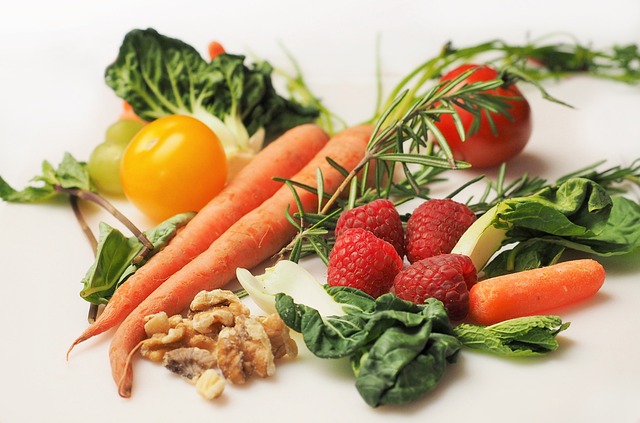Selected filters:
Diet types that support healthy glucose levels
When we are faced with the prospect of diabetes or prediabetes, it is quite easy to become heavily restrictive with our diets to achieve healthy glucose levels. And whilst it is important to practice mindfulness about the foods we eat, we need to remember that balance – not restriction – is key. What is the ...
Read more
8 ways to take back control of your blood glucose levels
For those who have blood glucose levels (or HbA1c) of 42mmol/mol (6%) and over, the prospect of making lifestyle changes to reduce it can be daunting. Whilst those with diabetes cannot reverse their diagnoses, it is possible to manage blood sugar levels and return improvements at their next test. Here are a few examples of ...
Read more
Testing for B12; what method should you choose?
With many B12 tests available on the market, it can be confusing as to which one to use to get an accurate reading of your B12 levels. To understand the difference, you must know a little more about B12 first…
Read more
The link between vitamin D and painful periods
A staggering third of all women are affected by menstrual disorders, and with less stigma around this subject, it is easy to understand why research into this area is growing. Recognising why you may have a menstrual disorder is vital, not just in terms of combating your physical symptoms but also from an emotional perspective. ...
Read more
The Importance of Health Testing
The importance of health testing can’t be overstated—it is like a window into our inner workings! Despite this, many of us neglect to check what’s happening inside our bodies. With today’s lifestyle, dominated by ultra-processed foods, long working hours, and sedentary habits, keeping an eye on our health is more crucial than ever.
Read more
Getting enough B12 from your vegan or vegetarian diet?
Vegan or vegetarian diets have become popular lifestyle choice, whether that is for reasons of sustainability, animal welfare or dietary preference. If managed well, with an emphasis on a diverse range of unprocessed plant foods, many people find these types of diets beneficial. However, there are a small amount of nutrients that may be harder ...
Read more
B12, the vital vitamin that gets overlooked…
Nowadays when you ask someone what factors are most important to them when choosing food, they will probably say taste, cost, the environmental impact of the food and how healthy it is in terms of whether it is ultra processed or contains high amounts of sugar and fat. But how many people evaluate the nutrient ...
Read more
Functional or Compositional Gut Test?
When it comes to gut tests and gut health it is sometimes hard to know where to start. After all, it is one of the most complex areas of the body and there is still so much to discover! It is not only where we digest and absorb nutrients, and expel waste products, but also ...
Read more
Do you really know your vitamin D levels?
Nearly every tissue in the body has vitamin D receptors, so it’s clear that it plays a key role in many different areas of our health. But is vitamin D really a vitamin? Well, technically, no, it is what is known as a prohormone, which is produced in the skin upon exposure to UVB rays ...
Read more
Getting to know omega-3
Type omega-3 into a search engine and you will probably see over 30 million results, with plenty of information about omega-3 supplements and food sources, together with articles and studies about its numerous benefits for the brain, eye health, cardiovascular health and reproduction. But…
Read more
Understanding and Boosting Gut Health: Importance and Tips
We hear so much about gut health these days, but do we really know what it’s all about? And how can we understand more about it when the terminology used to describe this complex area of our body can be so confusing, for instance gut microbiota, gut microbiome and gut flora to name but a ...
Read more
Yoga Poses to Help Digestion
Discover some top easy and simple yoga poses to help digestion. Much like gut health, yoga is popular and has been for a while. Unsurprisingly, yoga’s health benefits include flexibility, muscle strength, balanced metabolism, circulatory health, weight reduction, and more. Also, it is said to help gut health, which interests us. Specific yoga poses may ...
Read more
What is a Leaky Gut?
Medical professionals do not see a leaky gut as a proper condition, but it has become a popular topic among health circles. When referring to leaky gut, people are typically talking about permeability in the intestine, whereby toxins can leak through your intestinal wall. Although not recognised as a proper condition, more evidence shows that ...
Read more
Food and Mental Health. Is there a Link?
Can food really affect my mental health? Many people seek to take control of their mental health using self-help and find approaches they can use alongside, or even instead of, prescribed medication. For example, one self-help strategy is to change what we eat. As a result, there is a growing interest in how food and ...
Read more
How Long Does it Take to Restore Good Bacteria?
If you’re looking at your gut microbiome and asking the question “how long does it take to restore good gut bacteria?” you’re in the right place. If you’re not asking this, then you really should be. Multiple things can affect your gut bacteria, including being ill and doing a round of antibiotics. If you have ...
Read more
The Importance of Fibre
No doubt, you’ve heard the importance of fibre and how it helps your gut health, but there’s a chance you don’t understand why or really understand fibre at all. Well, that’s why we’re here. Read ahead to increase your understanding of why you should be keeping up with your fibre intake. Benefits There’s a reason ...
Read more
Food Allergies and Gut Health
What is an allergy? Firstly, let’s address the difference between an allergy and an intolerance. An allergy is when our immune system overreacts to an allergen. For some this might be a case of hayfever of a reaction to a specific food such as eggs, nuts or shellfish. A symptom from an allergy can vary ...
Read more
Why is Vitamin D so Important?
Vitamin D is vital to our bodies and contributes to various functions and body parts. For example, it helps maintain our immune system, supports strong and healthy bones and helps keep muscles and teeth healthy. In addition, vitamin D regulates the amount of calcium and phosphate. There is also evidence to suggest it can support ...
Read more
The Gut and Sleep: World Sleep Day – 18th March 2022
Like many things, sleep is directly connected with your gut, and your gut is directly connected with your sleep. Much like your internal body clock responds differently depending on the time of day, your gut microbes work in a similar way. However, your microbes have different functions, depending on whether it is day or night. ...
Read more
Can Our Gut Help Avoid a Hangover?
In 2017, 20.4% of people claimed to be teetotal and not consume any alcohol at all. It would probably be a fair guess that the number has risen since then, with the decision seemingly on the rise. The number of non-alcoholic beverages available appears to increase every few shopping trips, and the lack of hangovers ...
Read more
The Gut and Disease
Hippocrates, known as the father of modern medicine, once said that all disease begins in the gut. While that isn’t strictly true, there is evidence to suggest that a substantial amount of chronic metabolic diseases do. Also, approximately 70% of your immune system is in your gut, specifically in the gut-associated lymphoid tissue (GALT for ...
Read more
What is the Gut?
We talk about it all the time, but do you know what the gut is? Not a problem if not, here is a brief overview we’ve written so now you’ll know. The gut is a tube from your mouth to your bum. The gut, or gastrointestinal tract, processes food until it is either absorbed by ...
Read more
Five Gut Foods That Aren’t Fermented
By now, you’re probably pretty aware that certain foods are better for your gut than others. Read anything that mentions foods for your gut, and you’re bound to happen upon some fermented food. Sauerkraut, yoghurt, kimchi, kombucha are all great at providing you with good bacteria and helping your gut, but we know there are ...
Read more
Our Advanced Gut Test is Here
We are proud to introduce the NeoVos Advanced Gut Test, a significant step forward in gut health testing. Our new test takes the best parts of our Functional and Compositional tests and combines them. Put simply, the Advanced test measures what bacteria are present in your gut and how effectively they produce vital chemicals. This ...
Read more
Introducing Our Compositional Gut Test
Your gut plays a pivotal role in your physical and mental health. If something isn’t right in your gut, it’s likely to have an effect on other aspects of your body. With that in mind, we are excited to announce the release of the NeoVos Compositional Gut Test. This new test sits alongside our Functional ...
Read more
Which Foods Trigger IBS?
It is now believed that approximately 2 in 10 people suffer from irritable bowel syndrome (IBS) in the UK. IBS causes discomfort, or worse, in the stomach and significantly impacts people’s lives, particularly in severe cases. While IBS can be difficult to treat and manage, there are things you can do to relieve symptoms. Here ...
Read more
5 Habits that Harm Your Gut Health
With it being a New Year and resolutions and habit changing likely to be on your mind, we thought it would be an excellent time to list some practices that could be harming your gut health. After all, a small change can make a big difference. Lack of food variety It’s very easy to get ...
Read more
Introducing the NeoVos Functional Gut Test
You may have noticed our gut test looks a bit different and you would be correct. The NeoVos Functional Gut Test is the new and improved version of our NeoGut test. As with our previous Neogut test, you’ll receive your gut health score and personalised recommendations on how to improve your gut. However, now, our ...
Read more
A brief guide to BCFAs
Branched-Chain Fatty Acids, or BCFAs as they are often referred to, are metabolites produced by bacteria in the gut. However, BCFAs are linked to protein fermentation, so the lower levels of these chemicals in your gut, the better. A lack of fibre in the diet and excessive protein consumption is often a cause of a ...
Read more
10 Foods to Reduce Bloating
It’s something we all suffer from time-to-time and bloating can be incredibly uncomfortable. Luckily for all of us, there are some foods that can help to reduce the bloating. Here are 10 of our favourites to help you beat the bloat. Mint Not only is mint delicious, but many also claim it helps aid digestion. ...
Read more
World Mental Health Day
This month, we’ve teamed up with our friends at Nutrivitality this month in trying to help raise awareness for World Mental Health Day. Every year the 10th October marks World Mental Health Day, the purpose being to raise awareness of mental health problems. Although mental health is now being discussed more openly, there is still ...
Read more
5 Ways to Reduce Bloating
We’ve all been there when we’re feeling bloated and uncomfortable. Well, we’ve come up with five possible ways you can reduce your bloating issues. Don’t swallow too much air or gas. Drinking fizzy drinks, chewing gum, eating, or drinking too quickly or drinking through a straw can all be possible ways to swallow excess air ...
Read more
How to Improve Your Gut Health Naturally
It’s easy to get lost down a black hole of what to do and what not to do when looking through the internet. There are so many fads and random hacks or tips and tricks that may or may not work it’s easy to get bogged down and confused. Well, this month, we’re keeping things ...
Read more
The Best Probiotic and Prebiotic Foods
If you’ve read our other blog post, Probiotics vs Prebiotics – what’s the difference? then you will hopefully understand the difference between pro and prebiotics. However, you are probably wondering what foods constitute probiotics and what constitutes prebiotics, and that’s precisely what this blog post is for. Below we’ve compiled a list of foods for both ...
Read more
Probiotics vs Prebiotics – What’s the Difference?
Probiotics and prebiotics, we hear them both regularly mentioned when it comes to gut health. Nevertheless, do you know what they do, or do you wonder what the difference is between the two? Well, wonder no more as we’ve put this blog post together so you can learn the difference. Let’s dive straight in – ...
Read more
Easy Sauerkraut Recipe
By now, you are probably well aware that fermented foods are great for your gut health. With that in mind, we’ve got an excellent sauerkraut recipe for you so you can get fermenting at home and give your gut that extra helping hand. Sauerkraut Ingredients 1 medium sized cabbage shredded 1 tbsp salt ½ tsp ...
Read more
How to Combat Hay Fever
As the pollen chart shows below, hay fever, or allergic rhinitis to use its proper name, can cause issues for people throughout the year, but now we’re in the height of summer that most people seem to suffer the most. For some, the symptoms can be terrible, make you irritable, reduce your energy and affect ...
Read more
Allergies and the Gut
Allergies are becoming increasingly common in the UK. It is thought they affect more than 1 in 4 people at some point in their lives, and many believe that number will increase. The most common types of allergies are: Pollen from trees, grass and plants (hayfever) Animal dander Dust mites Insect stings Mould Food Latex ...
Read more
The Basics of Your Gut
The gut is made up of a series of organs. It runs from your mouth through the stomach, liver, small intestine, pancreas, gallbladder to your bowels. Collectively these organs work together to intake and absorb nutrients and water. Inside our gut, we have microbiota which consists of millions of things known as microbes, such as ...
Read more
The Gut-Brain Connection
Ever had butterflies, had a gut-wrenching moment, or thought you’d follow that feeling in your gut? It turns out the science suggests there are reasons we get these ‘feelings’ and it’s known as the gut-brain connection or gut-brain axis. Yes, that’s right, there is a communication system between your gut and brain. Interestingly, recent studies ...
Read more
3 Smoothies to Show Your Gut Some Love
The Green One (serves 2) 2 handfuls of frozen pineapple ½ frozen banana ½ avocado 1 teaspoon grated ginger 250ml water Add all the ingredients to a blender and mix until smooth. If the mixture is too thick add more water and blend again. The Red one (serves 2) 2 handfuls of mixed berries ...
Read more
IBS Awareness Month
It’s Irritable Bowel Syndrome (IBS) awareness month, so we’ve thought it would be great idea to help shed some light on this condition. Overview It is believed that roughly one in five people in the UK suffer from IBS and have episodes six times a year or more. Although it is possible to develop symptoms ...
Read more
5 Gut-Friendly Lunch/Dinner Recipes
Looking after your gut may seem like a full-time job, but these five recipes taste good, are good for your gut and don’t require Michelin Star chef skills. Traybake Chicken (Serves 4) 4 skinless, boneless chicken thighs 1 red pepper chopped into strips 16 cherry tomatoes 1 large red onion 1 tsp paprika 2 tbsp ...
Read more
3 Breakfast Ideas to Give Your Gut a Morning Boost
They say it’s the most important meal of the day, so why not begin your day with a nutritious breakfast and give your gut a helping hand too. Here are three tasty breakfast recipes to start you off on the right track. Overnight Oats (Serves 2) 60g porridge oats 150ml apple juice or water 1 ...
Read more
Kefir -What is it?
It’s a hot topic on the lips of the wellbeing community, but what exactly is kefir? Kefir is a fermented drink made using milk and originates from the North Caucasus, a region between Asia and Europe. It is made by adding kefir grains to milk. Interestingly kefir grains aren’t cereal grains; they look like small ...
Read more
3 Lifestyle Changes to Improve Your Gut Health
Looking after the careful balance of our gut microorganisms may seem like something solely attributed to our diet. However, our lifestyle factors can impact our gut health. Here are 3 lifestyle changes you can make to support your gut and boost your overall health. Exercise There are many reasons you should try to exercise regularly; ...
Read more
3 Supplements to Improve Your Gut Health
Your gut is a balancing act of microorganisms all living within your digestive tract. Keeping these microorganisms in harmony is the key to a healthy gut and essential for physical and mental health. Here we look at three supplements to get you on the right track. Probiotics Probably the most common supplement for gut health, ...
Read more
Fibre and the Gut
Fibre is important for your gut but is often overlooked. Now is the time to change that. Fibre acts as nourishment for the good bacteria in your gut, helping it to thrive. This helps your digestive system work more efficiently, allowing food to move through and help keep your bowel movements regular. Too little fibre ...
Read more
5 Foods to Improve Your Gut Health
Maintaining and improving your gut health doesn’t mean you have to spend a fortune on various supplements. Although they work, eating a few certain foods can bring a massive boost to the wellbeing of your gut. Here are 5 foods we love to eat to keep our gut happy. Fermented Vegetables Fermented foods are getting ...
Read more